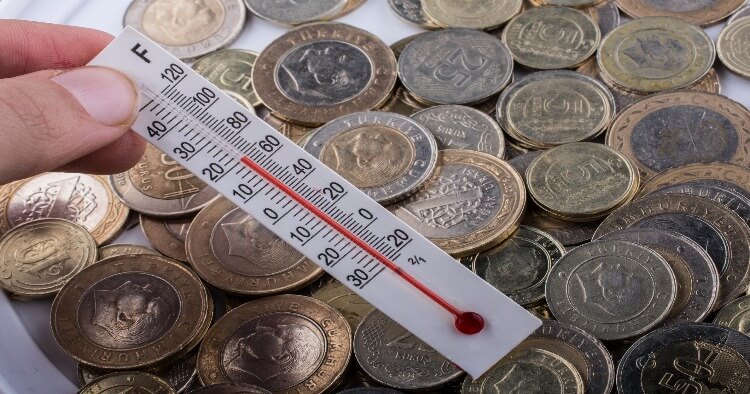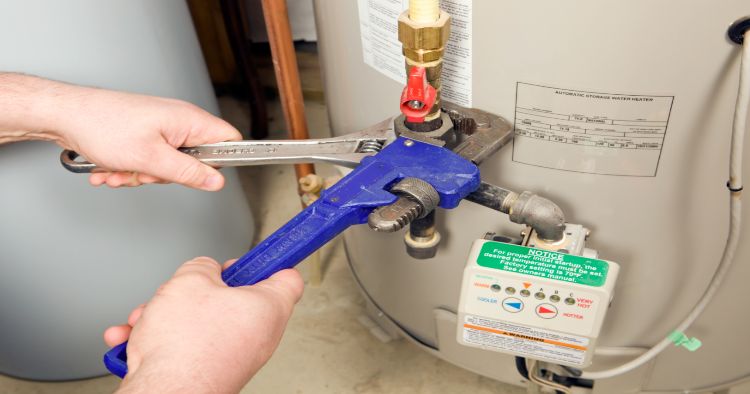Is a Tankless Water Heater worth it?

At the end of a long day, nothing's better than relaxing in a warm bath or shower. If you want plenty of hot water without high energy bills, a tankless hot water heater is a great option. These handy little appliances give you on-demand hot water without breaking the bank. When you're ready to replace your hot water heater, use this guide and decide if a tankless water heater is worth it for you.
Why go with a Tankless Water Heater?
Tankless heaters work a little differently than traditional water heaters. Instead of storing gallons of hot water, the tankless heater only heats up water when you need it. It looks like a small box mounted among some piping. Whenever you turn on a hot water tap, it instantaneously heats up the water you need.
The big advantage of tankless water heaters is that they use less energy since they only heat up water when you need it. You can save hundreds on your energy bill each year. Because they don't waste power, you can also enjoy the fact that your home will be more sustainable and eco-friendly.
The only downside of a tankless water heater is that tankless water heater costs for installation tend to be a bit higher. According to Consumer Reports, you should expect to pay about $800 to $1,500 or more to have your tankless water heater installed.
Gas vs. Electric Water Heaters: Which is better?
One of the very first things to consider is whether you should get a tankless heater powered by gas or electric. Generally, electric-powered heaters are easier and cheaper to install. Every home has electricity, and installation just requires connecting a few wires and pipes. Furthermore, electric tanks are about $500 cheaper due to their simplicity.
Gas tanks are trickier to install, especially if you don't already have a gas line running to your home. With gas tanks costing about twice as much as electric tanks, you might be wondering why people even bother with them. The big perk is that gas tanks are way cheaper to run since gas is cheaper than electricity. That difference can amount to about $100 to $200 a year in utility costs.
Choosing between Condensing and Non-Condensing types of Water Heaters
Non-condensing tankless heaters are the first generation of tankless heater design. They use a heat exchange system to warm water, and they vent hot exhaust outside your home. Home Depot explains that non-condensing heaters are cheaper to install and are less likely to need water heater repairs.
Condensing water heaters use the hot exhaust as a secondary means of heating water. This makes them more energy efficient. Though they are more complex and pricier to install, you end up saving on your energy bills. Another plus is that they work with cheaper PVC piping instead of requiring pricey stainless-steel flue pipes.
Should you consider Point-of-Use Water Heaters?
Also called on-demand water heaters, these are a special type of compact tankless water heater. They work just like a typical tankless heater, but they do not supply water to the entire house. Instead, you install them right by your sink, shower, or washing machine. With these heaters, you do not end up losing precious heat as the water travels around the pipes in your home, so you save on energy. These heaters can be a great way to supplement your hot water heating.
How to find the right Hot Water Heater Capacity
You need to consider flow rate to find the right capacity. This will tell you how much hot water your machine can comfortably produce on demand. You can calculate your required flow rate (usually expressed in gallons per minute, or GPM) by thinking about what sorts of water fixtures you plan on running simultaneously and then adding up all their individual flow rates. Here's a helpful list of the flow rate for common fixtures.
- Standard Dishwasher: 2 GPM
- High-Efficiency Dishwasher: 1 GPM
- Faucet: 1 GPM
- Shower: 2 GPM
- Rain Shower Head: 5 GPM
- Standard Washing Machine: 2.5 GPM
- High-Efficiency Washing Machine: 1 GPM
Things to know about Tankless Water Heater Costs
The average tankless water heater costs between $450 and $1,050 to purchase. When looking at costs, you also have to factor in installation. Typically, installation will add from around $400 up to around $1,000 to costs. If you need to install a gas line as well, expect to pay an additional $500. On average, total costs for buying the unit and installing it can be as low as about $600 or as high as nearly $3,000.
If you want lower costs, you may want to look at electric, non-condensing models. Lower-capacity models are also cheaper. Brands like Rheem, Takagi, and EcoSmart tend to have more budget-friendly models while higher-end models come from brands like Rinnai, A. O. Smith, and Bradford White.
A high-quality tankless water heater can in many cases last for 20 years as long as it is properly maintained and repaired. That’s why being prepared is a smart move. With a plan from HomeServe you can be ready should something go wrong. Learn more about heating and water heater plans from HomeServe today.


